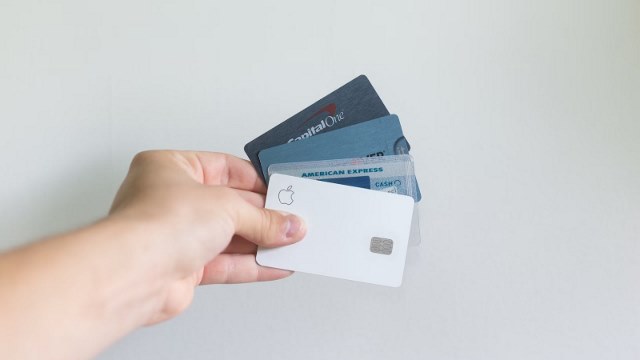Money will not bring you genuine joy, but financial stability will help you lower your stress and anxiety levels. Whether you are twenty-two or fifty-two, being financially responsible is essential to appease some of the uncertainty you may face while knowing that you have a sum of money you can rely on if anything comes up. Learning to use your income wisely and saving to live more comfortably in the future is something you should consider doing the minute you get your first paycheck. The following are seven intelligent ways you can save your money strategically.

1. Set Budget and Savings Goals
Save money, live better is a motto you should live by if you want to get your finances in order. One straightforward strategy is to set monthly budget and savings goals. Breaking down your expenses, loans, and earnings is the first step. Know how much you earn and the mandatory monthly payments you have going on, including loans, credit card debt, rent, fuel, groceries, and other essentials.
Once you have a breakdown of your expenses, see how much you have left and determine the sum you can afford to do away with. You may have a financial goal to buy a house or a car, but you should still save if you have no future financial acquisitions planned. Saving for the future is essential in emergencies, health care, or unemployment. There could be positive reasons why you would need your savings. Plan for the future and its surprises, whether you suddenly decide to get married, buy a house to start a family, establish your own business, or move to another country.
Tell someone about your financial goals so they can keep you accountable. It is also wise to determine the kind of future you hope for. Whether you wish to retire early, open a business, go back to school, or save for your growing family, having a goal close to your heart will make it easier to restrain yourself when considering going over the budget.
2. Record Your Expenses
Understanding where your money is going is essential to save efficiently. Budget and savings apps can show you how carefree you are regarding certain expenses like food or shopping online. Various helpful financial apps are free and come with charts, goals, and budget settings that you can use to record everything that you spend and save.
After just one month of recording everything religiously, you will have a clear idea of your problem areas. Use the charts and data the app provides to adjust your monthly budget and savings goals. Record your income to have a breakdown of how you use your salary. Not only will recording your expenses help you save, but the data will help you understand why you are in debt and how to adjust your spending to avoid increasing interest rates when using credit cards.

3. Seek Professional Advice
If your only idea of a savings option is to place a sum in a separate account, then seeking professional advice to excel in your finances is a good idea. A good financial advisor will help you make a comprehensive plan to save even while you are paying off your debt. The professional may help you refinance your debt or save money through taxes. Once you pay off your debt, the financial advisor can revise your finances and adjust your savings plan.
A financial advisor will suggest various options on how to save money every month. One popular savings strategy most professionals suggest is to invest in the stock market in medium to high-risk mutual funds. Your broker is the person who can remove the stress of knowing when to invest and what to invest in.
There are other savings options you may not be aware of. The professional will suggest different savings strategies or provide services to readjust unnecessary expenses like retirement strategies, tax efficiency, personal insurance, superannuation advice, and insurance claims.
In providing various services and strategies, you will have your portfolio in the hands of one professional who will review it now and again to ensure you reach your financial goals. This person will work on your income planning and help you save for the future with better clarity while taking advantage of the financial opportunities available.

4. Pay Off Your Credit Card Debt
Credit card debt has consequences if you do not take control of your finances. Primarily, your mental health can suffer under the continual strain of seeing your debt increase every month. Your credit score will take a hit which can be a problem if you hope to make a big purchase in the future, such as buying your first home.
One of the ways your financial advisor will show you how to manage money wisely is by addressing your credit card debt. Credit cards are not bad in themselves. It is how you use them that can cause you financial distress. Experts explain that if you pay your credit card debt in full every month and use it wisely, you can benefit by collecting points and saving money when buying things like flights, gifts, and other items with reward points.
Ask your broker if taking out a loan to clear your credit card debt makes financial sense. Such debt comes with high-interest rates, and a small loan could make more economic sense to ease the debt with lower interest rates.
5. Automate Your Savings
One of the most clever ways to save money is to automate your savings because, in doing so, you will have no excuse for forgetting to put money away and spend it. Get your bank or financial advisor to automate your savings so you do not need to remind yourself to put money away. Some of the savviest people in the world take their savings seriously by moving any remaining money from their current account to their savings account.
Say your monthly budget is 1000 dollars; one day before you get your salary, you have 100 dollars left in your account. The savviest people will move that 100 dollars to their savings account to ensure they save as much money as possible.

6. Spend Your Money Wisely
Living within your means and not spending more money than you earn is the golden rule for financial responsibility. Although you may live by this rule, you may still need to learn how to spend your money smartly. You may not realize that the little daily purchases cost you from saving more. Take your lunch break as an example. The average cost of eating out for lunch in the US was 11.14 dollars in 2015.
Say you spend 10 dollars daily on a simple lunch, nothing extravagant. This means you spend 2,600 dollars on lunch, give or take a week. In contrast, you are likely to spend far less if you pack a lunch. Even your daily purchase of fancy coffee can add up. Although it is natural to want to indulge, realizing how costly these tiny daily spendings can be is essential. So, when planning your budget, give yourself some leeway to indulge occasionally without costing your financial future.
7. Live Simply (and Don’t Forget to Cancel Automatic Subscriptions)
We can find any entertainment we want these days. Whether your idea of fun is dining out, shopping online, traveling, or attending workout classes, opportunities to spend money are always close. Although it is good to find an outlet and relax, it is essential to practice restraint and discipline if you want to have a solid financial footing in the world.
An excellent way to do this is to appreciate the simple things in life, like walks in nature, a good home-cooked meal, or a workout at a friend’s house, so that when you spend money, you do it for something exceptional.
The savviest people know that hidden expenses, like automatic subscriptions, always creep up on us. From apps to gyms, service providers, and long-forgotten personal blogs, we all have costly automatic subscriptions that we never get around to canceling. For the best financial future, take the time to go through all your subscriptions and cancel any that you are not using.
Summary
Breaking down the sum you hope to save in tiny figures will make your goals feel more reachable. Even if you are not an expert in financial matters, simple math will show you how long you need to reach your financial goals. To save 10K a year, you must put away 850 dollars a month or 28 dollars a day.
Being ambitious about your savings goal is an excellent way to begin this journey. However, it is best to determine how little you can live on and how much you can save. In doing so, you will save for a financially stable future where you control your debt and enjoy exciting opportunities without dreading the financial burden.


 From Pennies To Prosperity: 10 Best Ways To Save Money for Your Children
From Pennies To Prosperity: 10 Best Ways To Save Money for Your Children  11 Clever Ways to Save Money and Achieve Your Financial Goals
11 Clever Ways to Save Money and Achieve Your Financial Goals 